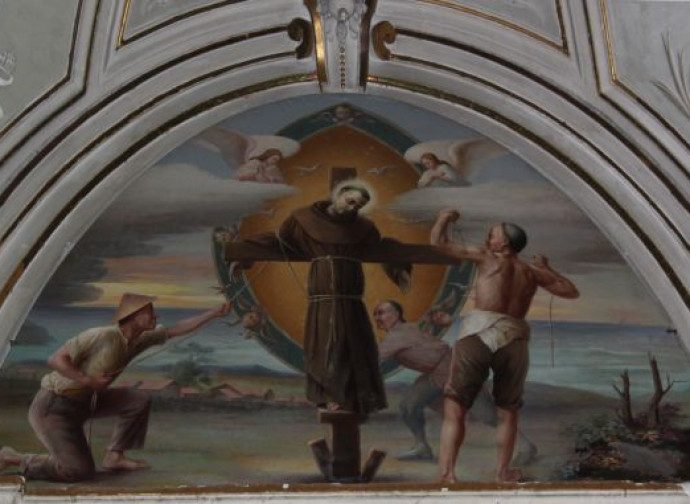Saint John of Triora
He was one of the missionaries who proclaimed Christ in China without yielding to compromise, to the point of sacrificing their lives

John of Triora (1760-1816) was one of the missionaries who proclaimed Christ in China without yielding to compromise, to the point of sacrificing their lives. He was canonised by John Paul II on October 1st, 2000, together with 119 other martyrs (beatified at different times and whose leader in the Martyrology is Augustine Zhao Rong) killed in China between 1648 and 1930.
The Saint, born Francesco Maria Lantrua, came from a wealthy family who sent him to study at the schools of the Barnabites. There he soon discovered his vocation to the religious life. So he asked his parents for permission to go to Rome, where to welcome him he found a fellow-countryman (from Liguria) named Luigi, provincial of the Franciscans. On March 9th, 1777, a few days before his 17th birthday, the young man took the Franciscan habit assuming the name of John. He studied philosophy and theology and was ordained in 1784. During the following 15 years he taught theology and was assigned the role of guardian father in several convents of Lazio, then part of the Papal States.
In 1799 John's life took a radical turn as he was sent to China, where he arrived after eight months' journey. He spent the initial period of his mission learning the language and customs of the place, began to dress like the Chinese and started his work of evangelisation in the province of Hunan. His mission was carried out peacefully for some time, until Emperor Kia-Kin began to show hostility towards Christians. The first punitive measure came in 1805, and was followed by two edicts in 1811 targeting those Chinese who were preparing to receive the holy orders and the religious who preached conversion to Christianity. A 1813 decree exempted from punishment those who would resolve to deny Christ.
In this context of growing persecutions, on 26 July 1815, after celebrating what would be his last Mass, John was accused of subversion: "Having entered secretly, he has travelled through various provinces, collecting disciples". Therefore he was arrested together with other Chinese Christians. The months spent in prison and the tortures intended to have him recant did not affect his faith at all: if anything, they tempered it. Given his tenacity, on February 7, 1816 the priest was led to the gallows in the city of Changsha, where he was tied to a cross and strangled. Shortly before being executed, as a last, sensational proclamation of faith, Saint John had obtained permission to make the sign of the cross; that sign was accompanied by the five deep bows he had learned from Chinese Catholics as thanksgiving to the Holy Trinity for five of its wonders: Creation, Redemption, the gift of faith, sacramental grace and all the other graces.
